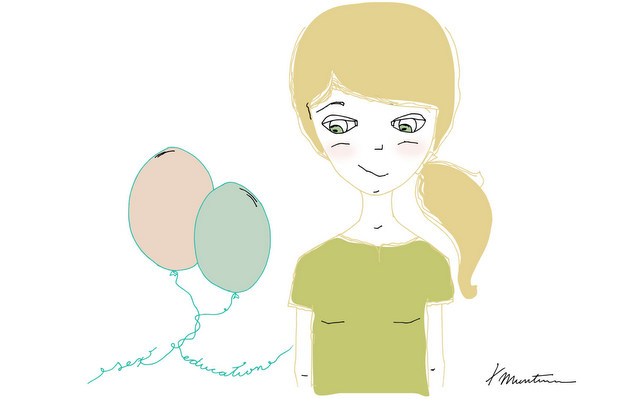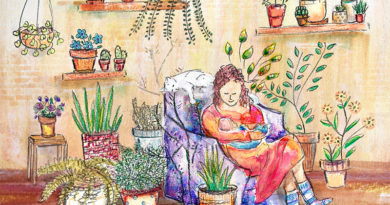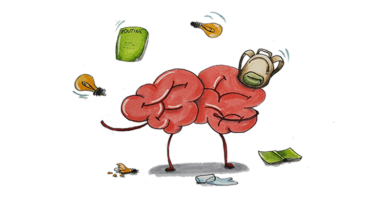Sexuality and Relationship Education

“Let’s talk about sex baby, let’s talk about you and me…”
Sex education no longer means sitting at a desk in biology class learning about sexual reproduction in rabbits. Sometimes it is a distinct advantage growing up in modern times! Current policy as promoted in E.U. countries aims to help adolescents to “make appropriate and healthy choices in their sexual behaviour.” Even in conservative Switzerland, parents are not left alone in the delicate process of enlightening adolescent children about the birds and the bees. Thank goodness, because ostrich behaviour, whether at home or at school, will not work in their favour, nor is preaching abstinence a safe strategy.
In Europe the average age of puberty is 14; in the U.S. it is 12. By age 15, 25 percent of teenagers in the U.S., U.K. and Australia have already had sex. After the U.K. government took action to reduce the high rate of teenage pregnancies from 1998 to 2010, ongoing aims were formulated. Chief among these was to help teenagers “to deal with pressure to have sex; enjoy positive and caring relationships; and experience good sexual health; also they need to know how they can access and use contraception effectively” when they do reach the stage that they become sexually active, so they can avoid unplanned pregnancies and sexually transmitted infections (STIs).
Adolescents say they would appreciate less “anatomy and scare tactics”; sex education should focus instead on “negotiation skills in sexual relationships and communication and details of sexual health clinics should be advertised in areas that adolescents frequent (for example, school toilets, shopping centres).”
Discussing relationship issues as well as sexual development at puberty, in my opinion, should be standard in schools these days, especially those that serve expats. Many third-culture kids have few familiar adults who are not their parents with whom they can talk openly. Sensitivity to specific cultural taboos and inhibitions as well as learning a new language can also contribute to our children having few people around who they can confide in, which gives teachers an especially important role.
Traditionally schools introduce children to biological principles and facts, leaving more sensitive emotional issues to be broached outside school, but recent teacher training in canton Zurich has fostered skills in handling this topic more broadly for kids ages 13-15. In canton Schwyz, Pam Bremer at Obersee Bilingual School says the curriculum is quite comprehensive. However, few secondary schools tackle complex issues such as sexuality and ethnic or religious beliefs here, and another problem with proper development of communication skills is systemic – in my local state school system, Zurich, the two transition points to new schools at 7th and 9th grade can mean teenagers have to change peer group not just once but twice. There are of course differences between the state curricula in different cantons; the German part seems to be catching up with the French currently.
If your child does not have access to sensible information about puberty from their primary school, my advice is to do it yourself. Otherwise you could find that your child’s predominant beliefs are those of their peers rather than filtered by responsible adults. The average teacher can find it a difficult subject to tackle. There are good reasons for this reluctance: social taboos, unknown culture, religion and uneven individual maturity can prevent primary schools from formulating a clear policy or curriculum. But even primary-age children need more than the biological facts, and unless they attend a church group, school is the only place they can learn to focus on dealing with personal issues outside the family.
Far-sighted teachers in primary schools sometimes initiate a discussion about peer relationships as part of the social curriculum in fifth or sixth class. Several private bilingual and state primary schools address sex education via outside facilitators Lust und Frust in Zurich, who offer introductory and gender-separated sessions in German. Jeremy Scrimes at d’Insle Montessori school says, “In this way the children have the chance to discuss things with the class teachers (if they prefer to talk to somebody they know well) or with the visiting teachers (if they prefer to not talk about something personal with somebody they’ll see every day for at least the rest of the year).”
One-off sessions are inevitably limited and stressing confidentiality could also reinforce a culture of privacy rather than bringing these subjects into the open. My son, who attended one of these sessions, remembered that the facilitators were keen to have the students learn and remember the name of the organisation. I imagine they thought kids could look them up on the Internet later if needed!
A well-orchestrated group discussion is hard to organise. At Lakeside School there is a suggestion box so teachers can pick up on topics as well as initiate their own in school. The Tandem IMS curriculum includes a unit of enquiry on “My Body: Sexuality and Reproduction,” covering body changes at puberty in fifth class, in both English and German, which gives the children six to eight weeks to consider the subject. At Terra Nova secondary school in Küsnacht, students have more frequent opportunities in older years.
Zurich International School (ZIS) has a comprehensive curriculum. In grade five, at ages 10-11, male and female teachers separately talk about the biological and emotional changes at puberty. Then in grade seven, at ages 12-13, they have a whole unit on adolescence and sexuality, including “sex as a sales tool,” stereotyping, orientation, intimacy, contraception and STDs. This is the second year of their middle school and comparable with U.K. junior school; students benefit from attending a large English-speaking international school in this respect.
In my opinion sex and relationships education should create a platform for emotional literacy at the most appropriate points, which is difficult given the span of up to two years of age within any class group. Moderated peer group discussions at school should offer the possibility of feeling safe to explore issues without being judged. The trusted environment of the last year of the primary phase is suitable timing for the first of these sessions, and the rest should take place in the second and fourth year of Swiss secondary school, as most children are new in the first and third years (grades seven and nine in Zurich schools). Lessons should also be focusing on skills, not just content.
The Dutch approach is the most successful in Europe; it really prevents unplanned pregnancies. Over half the primary schools address the issues of sex and contraception, the key messages get media attention, and in secondary schools dedicated textbooks cover biology as well as “values, attitudes, communication and negotiation skills,” with the stated aim of helping pupils to make their own decisions about health and sexuality.
Their success is attributed in the wake of the 80s AIDS epidemic to teachers being “forced…to become more explicit and to discuss norms and values using a participatory approach,” and media campaigns on the subject.
In summary: the issues are finally being faced here in Switzerland, but few schools ensure a socially responsible and engaging curriculum that goes beyond teaching biological facts. Good schools make the aims of their chosen approach, whether in-house or outsourced, clear to parents and pupils. The main challenge in Switzerland and Europe as a whole is to ensure that children can discuss issues openly, and to check that they are learning communication skills which they can use in emotional situations.
References:
U.K. Department of Health. Teenage Pregnancy Strategy: Beyond 2010
DiCenso A., et al.: “Interventions to Reduce Unintended Pregnancies Among Adolescents: Systematic Review of Randomized Controlled Trials.” British Medical Journal 2002
Unesco. “The Dutch Model” in The Courier July/August 2000, p. 19. http://unesdoc.unesco.org/images/0012/001201/120152e.pdf. (You might need to put the address directly into your browser address line, i.e., copy and paste, to access this publication.)
We thank the following Zurich-area schools for providing information for this article: Obersee Bilingual School, d’Insle Montessori school, Terra Nova, Zurich International School (ZIS), Lakeside School, Tandem IMS.
By Monica Shah
Monica Shah established peer-counselling services in schools and led teacher-training projects in the U.K. before specialising in infant observation. She was director of the Islington Women’s Counselling Centre in London until 2001. She has lived in Switzerland since then and now works as an early years specialist in Zurich. Monica is a qualified mediator and the mother of a twelve-year-old boy.
Illustration by Laura Munteanu
Laura has studied Journalism and Advertising, and has been working as a journalist and an illustrator. She has been illustrating for magazines, websites, charity and different campaigns. She lives in Zurich with her husband and her 5 -year- old daughter.



